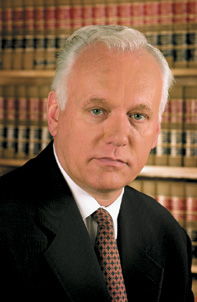By Robert G. Sullivan, Esq.
Very often physicians who provide medical care to patients in emergency rooms are not employees of the hospital. Rather, a very common practice is that hospitals hire physicians as independent contractors to provide emergency medical services. Until New York State’s highest court decided the seminal case of Mduba v. Benedictine Hospital, hospitals were able to avoid liability for the malpractice of independent contractor physicians working in emergency rooms on the grounds that they were not employees of the hospital.
The decision in the Mduba case changed this very unjust result. The Mduba ruling stands for the proposition that hospitals, holding themselves out as institutions furnishing doctors, staff and facilities for emergency treatment are liable for the negligent performance of those services even when the provider is not an employee of the facility. This decision is premised on the expectation that patients entering the hospital through the emergency room could reasonably assume that the treating physicians provided by the hospital were acting on its behalf. As a result of this important decision, the secret contract between the hospital and the contract physician is no longer sufficient to absolve the hospital of liability.
The rationale of the Mduba decision has been extended to those patients who are admitted to a hospital through the emergency room and do not have their own private doctor coordinating their care. Such patients are commonly referred to as “service” patients. Since the hospital directs what doctors and staff are assigned to the care of such patients, it must bear responsibility for the treatment rendered.
In the 2003 case of Malcom v. Mt. Vernon Hospital, an intermediate appellate court in New York found that the plaintiff could maintain an action against a hospital based on the hospital’s vicarious liability for the negligent acts of an independent contracting doctor.
The court based its determination on the following facts: (1) all of the plaintiff’s negligent medical care occurred at the hospital; (2) upon admission to the hospital, the plaintiff did not request a particular cardiologist, but rather chose the doctor from a number of cardiologists “on staff” that were available for consultation, and (3) the plaintiff had no prior relationship with the treating physician. Therefore, despite the fact that the treating doctor was not a hospital employee, the court allowed the plaintiff to maintain her action because the plaintiff could reasonably believe that the cardiologist was acting on the hospital’s behalf.
The Mduba case has not, however, changed the long-standing rule that hospitals do not have any liability for the acts and/or omissions of private attending physicians. Private attending physicians are doctors who, while not employees of the hospital, have privileges to admit their private patients for treatment. Thus, where a patient is referred to a hospital by his or her own private doctor, the hospital will not be liable for any acts of malpractice committed by a private attending physician during that admission. If the acts of malpractice were committed by a private doctor he or she must be sued directly in order for you to recover damages. Therefore it is important that if you suspect that you have been the victim of medical malpractice that you consult a lawyer experienced in this specialized field of litigation so that you are certain that in any law suit brought to recover money damages that you have the correct defendants.
